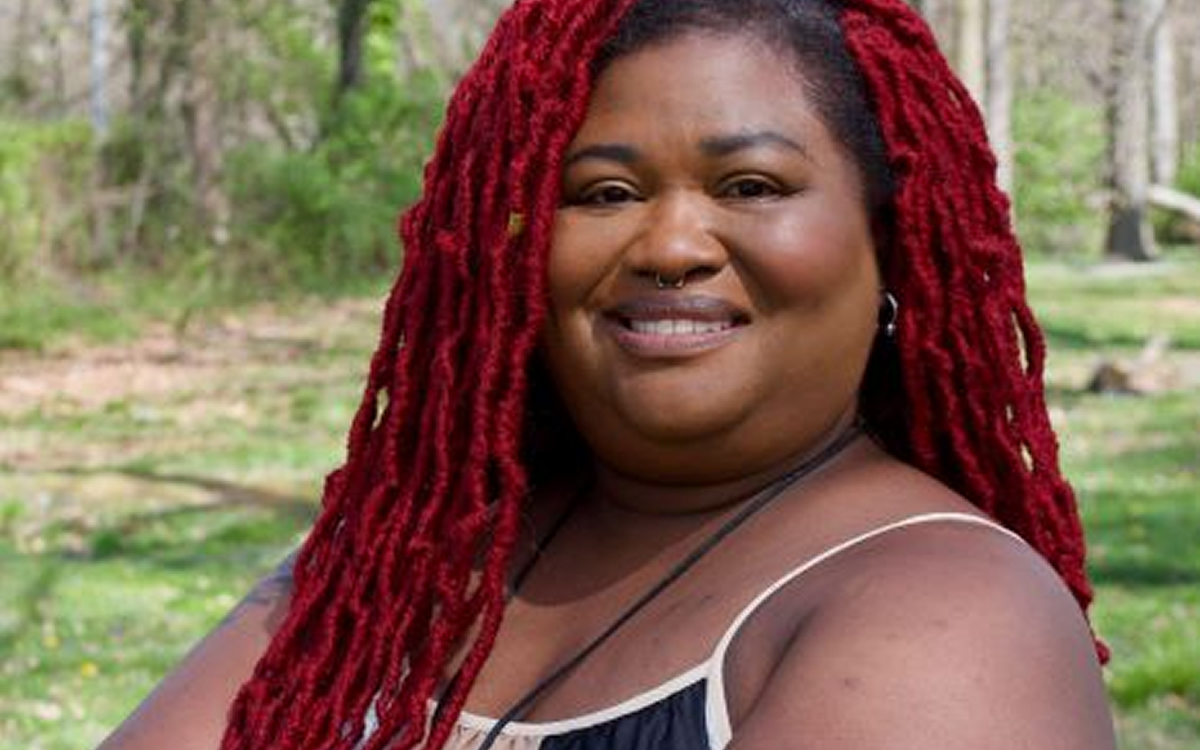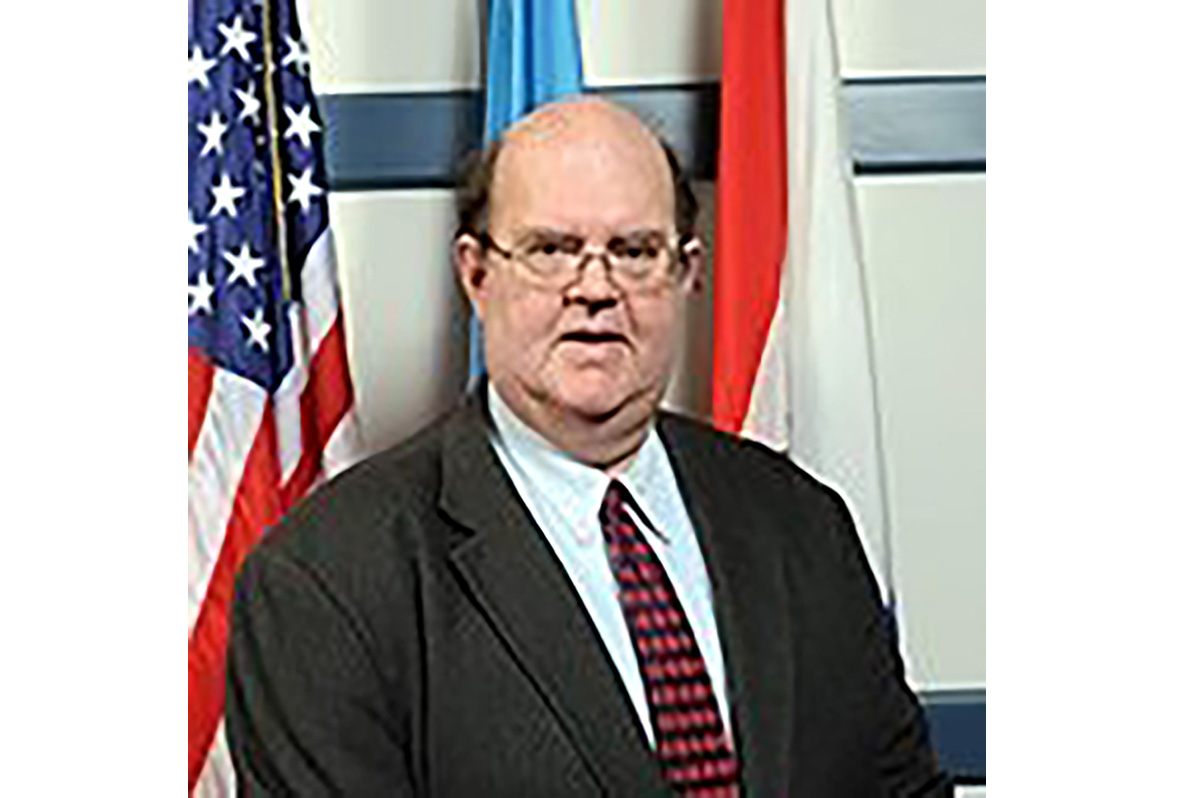Delaware
Delaware lawmakers seek to enshrine protections for gender-affirming care
Bill aimed at starting a discussion, unlikely to advance

Delaware residents who receive gender-affirming care and the doctors that provide it can breathe a sigh of relief if a bill aimed at protecting those who seek gender-affirming care and the doctors that provide it passes.
The bill, introduced by Rep. DeShanna Neal (D-District 13) last week, tacks on gender-affirming care protections to existing protections for those who receive or provide abortions.
“I filed House Bill 230 because we are seeing other states weaponizing their laws against the transgender community, and we should be clear that we will not let those other states’ laws prevent people from seeking gender-affirming care in Delaware,” Neal said in a statement.
The bill would prevent out-of-state people from suing a patient who received gender-affirming care in Delaware and the doctors that provided that care. It would also prevent insurance companies from penalizing doctors providing gender-affirming health care so long as they are not breaking Delaware’s laws.
Kelly Nichols, a nurse practitioner who provides gender-affirming care like hormone therapy to patients at Planned Parenthood clinics in Delaware, said the bill is extremely important given the wave of anti-transgender legislation around the country.
“It’s really important in the face of that that we have protections as providers here for patients who may be traveling here to seek care,” Nichols, the associate medical director at Planned Parenthood of Delaware, said in an interview.
The country’s major medical groups, including the American Medical Association and the World Health Organization, all support gender-affirming health care.
Despite that support, Neal wrote in a statement that they won’t be pushing the bill forward in the House Health & Human Development committee this year, adding that the bill would start a useful discussion about transgender health care protections. They did not reply to an email asking for an interview and a House Democratic Caucus communications staffer said it was hard to nail legislators down because the legislature is in session.
Neal’s move came after opposition from Senate Republican leaders, including Senate Minority Leader Gerald Hocker and Senate Minority Whip Brian Pettyjohn. The two senators claimed that the bill would erode parental rights in a statement, which has become a standard talking point for Republicans across the country. Two representatives for the Senate’s Republicans did not respond to an email and multiple phone calls requesting an interview with the legislators.
The senators added that children are “rarely” held liable for crimes because their brain is still developing – and so is their body – so, they claim, it makes little sense to allow them to undergo “irreversible changes” to their body.
In fact, teens rarely undergo surgery before 18. Doctors must agree that a patient, child or not, needs the physical transition care. Each surgery has different guidelines associated with it, and the major medical associations all fully support gender-affirming care and oppose bans.
Teens who receive gender-affirming care are much less likely to die by suicide, according to an observational peer-reviewed 2022 study in the Journal of the American Medical Association. In the cohort the study examined, youth were 73% less likely to attempt suicide.
The senators also say the legislation erodes parental rights, a claim that has become the standard talking point for Republicans across the country who see gender-transition care and children’s ability to explore their gender – especially at school – critically.
Neal said they will spend their legislative break, from July 1 into 2024, building support for the bill and educating residents about transgender healthcare.
The bill also gives the state more tools to combat legislation in other states preventing healthcare for transgender people: It allows Delaware to hear child custody cases for kids in Delaware for gender-affirming care from states that ban the care; it prevents Delaware from turning over people that broke another state’s ban; it allows anyone sued in another state for getting or helping someone receive gender-affirming care to countersue them in Delaware; and prevents trans patients’ records from being shared without their consent.
“Unfortunately, as we’ve seen with the reaction of some in Delaware already,” Neal said in the statement, “more dialogue is needed. I look forward to future discussions regarding the importance of protecting the rights of those seeking gender-affirming care in Delaware.”
Delaware
Delaware’s first openly gay elected official dies at 66
John Brady remembered as dedicated public servant

John Brady, the first openly gay elected official in Delaware, passed away in his home on Aug. 10 at age 66 after battling a long illness.
Brady was a deputy attorney general and was elected to three Sussex County offices: register in chancery, recorder of deeds, and clerk of the peace.
While clerk of the peace, Brady performed the first legal same-sex marriages in the state starting in July 2013. He told a local radio station just last week that he performed more than 400 marriages in his four-year term.
“John married my husband and me on the beach in Rehoboth 11 years ago,” said Washington Blade editor Kevin Naff. “He took great time and care in crafting our nuptials. It was a beautiful moment we will never forget. John was a pioneer for the LGBTQ community in Delaware, a dedicated public servant, and a gentleman. He will be missed.”
The day before he passed away on Aug. 9, former Speaker of the House Pete Schwartzkopf and former Lt. Gov. Bethany Hall-Long presented Brady with Delaware’s highest civilian honor for individuals who meet a high standard for community service, the Order of the First State.
Brady retired in 2024 after 32 years as a member of the Delaware Bar and 16 as a state employee. He was also active in the Eagle Scouts, working as a Scout leader and professional scouter. He received the Founder’s Award in 2023, one of the highest honors.
“Delaware mourns the passing of John Brady, a true public servant, trailblazer, and dear friend to many,” Gov. Matt Meyer wrote in a statement on Aug 11. “From his dedication to justice and service through the law to the barriers he broke as Delaware’s first openly gay elected official, John fought with compassion to improve our state and touched countless lives in the process. Lauren’s and my prayers are with John’s family and friends, as we all mourn his passing and celebrate his extraordinary life.”
Delaware
Del. att’y gen’l among plaintiffs suing Trump over access to care for trans youth
Coalition of states filed motion last week

A coalition of more than a dozen states, including Delaware, filed a lawsuit on Aug. 1 to block the Trump administration’s efforts to restrict access to medically necessary care for transgender youth.
Filed in federal court in Massachusetts, the lawsuit challenges Executive Order 14187 from January, in which President Donald Trump refers to gender-affirming care such as puberty blockers, hormone therapy, and surgeries as “mutilation.” It declares that the policy of the United States will be to “not fund, sponsor, promote, assist, or support the so-called ‘transition’ of a child from one sex to another, and it will rigorously enforce all laws that prohibit or limit these destructive and life-altering procedures.”
The suit argues that the EO violates the Administrative Procedure Act (APA) and the Tenth Amendment by asserting federal overreach into state-regulated medical and healthcare decisions.
“It becomes clearer every day that there simply is no bottom to this administration’s cruelty,” said Attorney General Kathy Jennings in a press release. “With his agenda failing and his popularity plummeting, the president is turning to time-tested tactics of demagogues: turning vulnerable people into scapegoats, obsessing over their private lives, and intruding on medical decisions. These stunts make kids into political props and do nothing to help Americans. They are despicable, dangerous, and illegal.”
Gov. Matt Meyer recently signed an executive order making Delaware a shield state for providers of gender-affirming care. It prohibits state agencies from cooperating with investigations, subpoenas, or legal actions by other states against individuals or providers involved in care that is legal in Delaware.
According to the press release, providers in some states have begun to reduce or eliminate services due to federal actions. Nemours Children’s Hospital in Delaware is no longer providing gender-affirming care to new patients.
Medical experts and nearly every major national medical association endorses and supports the availability of gender-affirming care for transgender young people.
“Empirical evidence has demonstrated that trans and nonbinary gender identities are normal variations of human identity and expression,” the American Medical Association said in 2021.
Plaintiffs include the attorneys general of California, Connecticut, D.C., Hawaii, Illinois, Maine, Massachusetts, Maryland, Michigan, Nevada, New Jersey, New Mexico, New York, Rhode Island, and Wisconsin, and the governor of Pennsylvania.
Delaware
Intersex actor, advocate River Gallo attending screening event in Delaware
Afternoon includes screening of ‘Every Body’ and Q&A

Intersex actor and advocate River Gallo will attend a screening of their film “Every Body,” followed by a Q&A in Wilmington, Del. this Saturday.
River Gallo is a Salvadoran-American filmmaker, actor, writer, model, and intersex rights activist from New Jersey. They wrote, directed and starred in the 2024 film “Ponyboi,” the first film to feature an openly intersex actor playing an intersex person. Intersex refers to individuals who are born with reproductive or sexual anatomy that doesn’t fit the typical definitions of male or female.
The movie that will be shown at Theatre N in Wilmington on July 26 at 4 p.m., “Every Body,” documents the lives of three intersex people, including Gallo. Following the film, Gallo will engage in a Q&A to discuss their life as the child of immigrant parents, activism, and film career. The event is hosted by Orgullo Delaware and the Delaware Sexuality and Gender Collective. ACLU Delaware and InterAct are partners in the event.
Noah Duckett co-founded Orgullo Delaware in 2019 with his mom, Julissa Coriano, to provide resources for Latino LGBTQ Delawareans and their families.
Duckett said that a lot of times, intersex people are left out of conversations surrounding the LGBTQ community. He hopes to pack the house for this event and emphasize how special it is that Gallo will be there in-person to connect with the audience about their work.
“I’m really hoping that people will be able to gain more of an understanding of what it must be like to navigate the world as an intersex person,” he said.
Mike Brickner, executive director of the ACLU of Delaware, seconded that the intersex community typically does not get as much spotlight within the LGBTQ umbrella.
“I hope that there are members of the intersex community that do come, that they also feel seen and acknowledged,” he said. “There’s often so few spaces for people to talk about that community and to really share about their experiences, so I do hope that visibility brings some level of comfort to folks.”
InterAct is an organization dedicated to the rights of intersex youth. It was initially founded with the goal of bringing legal action against the practice of non-consensual surgeries on intersex infants, according to Maddie Moran, the director of communications.
Moran said intersex people have historically been victimized and targeted by the government, by medical institutions, and by legal institutions. They said the average politician can’t even define intersex.
“Many of the average people in society don’t know that intersex people exist, and don’t understand that sex is not as strict as an XX and XY binary. It’s so much more than that,” they said.
Moran said they came out publicly as intersex before working with InterAct, but suddenly didn’t feel so alone after joining. They said that visibility is more critical now than ever and Gallo is just one of the people stepping up to be that visibility in the intersex movement.
“To intersex young people out there, you’re really not alone,” Moran said. “There are so many people who share your experiences, who share similar stories to yours, and regardless of what you’ve been told, there are many, many people out there like you.”
Brickner has come to the conclusion that the only way to get through the country’s current moment is through real and authentic solidarity.
“We have to acknowledge other people’s identities,” he said. “We have to have events like this that acculturate people to those identities, and that’s how we really create understanding and true, authentic solidarity with our broader community, is if people understand one another and see their lived experiences.”
-

 Sponsored4 days ago
Sponsored4 days agoSafer Ways to Pay for Online Performances and Queer Events
-

 District of Columbia3 days ago
District of Columbia3 days agoTwo pioneering gay journalists to speak at Thursday event
-

 Colombia3 days ago
Colombia3 days agoBlade travels to Colombia after U.S. forces seize Maduro in Venezuela
-

 a&e features3 days ago
a&e features3 days agoQueer highlights of the 2026 Critics Choice Awards: Aunt Gladys, that ‘Heated Rivalry’ shoutout and more



















